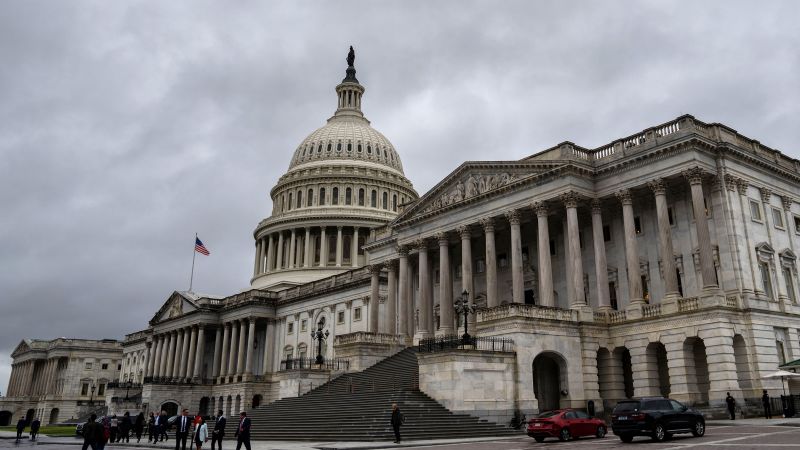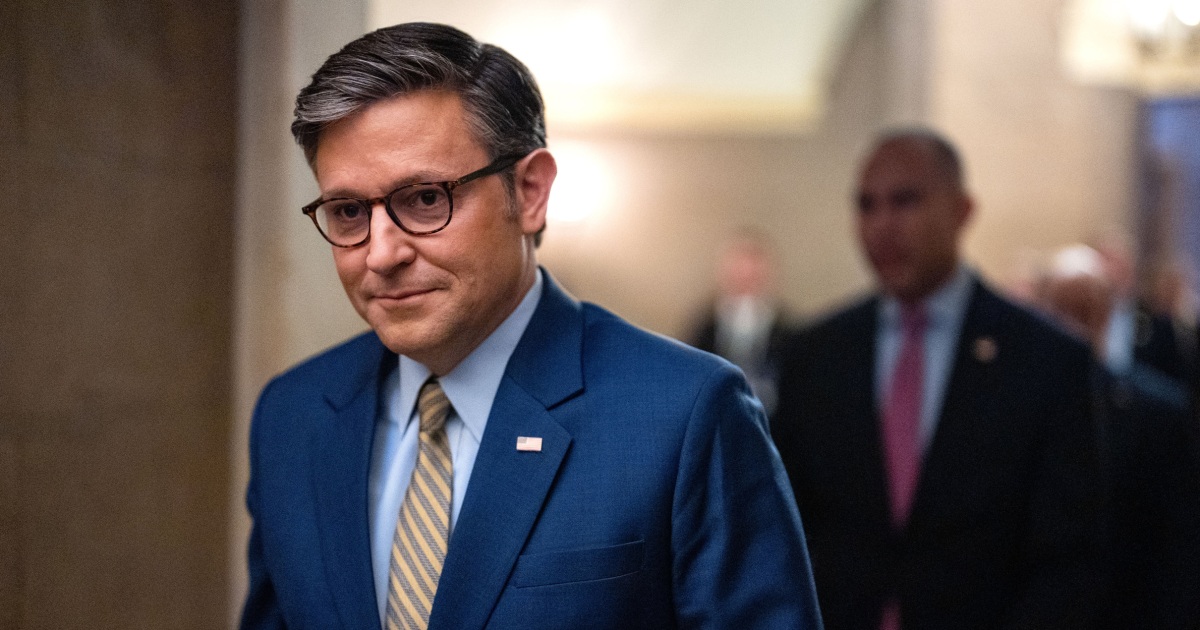The House is expected to have 434 members present. The one seat expected to be vacant is that of former Rep. Matt Gaetz.
Members will be called individually and vote by calling out a name. To be reelected as speaker, Johnson will need a majority. The magic number isn’t set in stone, which is why things can get a bit tricky. It could change based on attendance, and whether members vote for a named candidate or simply record themselves as “present.”
So let’s run through some scenarios.
If all 215 Democrats show up and unite behind their leader, Rep. Hakeem Jeffries of New York, Johnson will only be able to lose one Republican who votes for another named candidate:
- Jeffries: 215
- Johnson: 218
- Other candidate: 1
- 218 out of 434 = A majority for Johnson
If he loses a second Republican to another named candidate, he would not have the magic number for a majority:
- Jeffries: 215
- Johnson: 217
- Other candidate: 2
- 217 out of 434 = Not a majority
He could in theory lose one GOP vote to another named candidate, and afford one other Republican defection so long as that person records “present” and doesn’t vote for an alternative candidate. That’s because the number he’d need for a majority would be lower:
- Jeffries: 215
- Johnson: 217
- Other candidate: 1
- Present: 1
- 217 out of 433 = A majority for Johnson
He cannot lose a GOP vote to a named candidate if two Republicans vote “present,” however:
- Jeffries: 215
- Johnson: 216
- Other candidate: 1
- Present: 2
- 216 out of 432 = Not a majority for Johnson
He could lose three defectors if they all vote “present”:
- Jeffries: 215
- Johnson: 216
- Present: 3
- 216 out of 431 = A majority for Johnson
However, we know this last scenario won’t happen, because Rep. Thomas Massie of Kentucky has already told reporters he won’t vote for Johnson and will vote for an alternate candidate.
Currently, Massie is the only “no.” He told reporters in December that he had a “few” alternate candidates in mind, but wouldn’t say who they were.
There are several Republicans who have publicly said they’re undecided on Johnson, including Reps. Chip Roy, Andy Biggs, Victoria Spartz, Tim Burchett and Ralph Norman. Johnson met with several of the holdouts on Thursday.
The key advantage for Johnson is that no other Republican is currently challenging him or has publicly expressed interest in doing so.
The 119th Congress is officially underway, and the House of Representatives is gearing up for a historic vote for speaker. As the newly elected members take their seats, all eyes are on the House floor as the representatives prepare to cast their votes for the individual who will lead the chamber for the next two years.
The speaker of the House is a pivotal role, responsible for presiding over debates, guiding legislation, and representing the institution to the public. With the Democrats holding a slim majority in the House, the vote for speaker is expected to be a closely contested and crucial decision.
The outcome of this vote will not only set the tone for the 119th Congress but will also shape the legislative agenda and priorities of the House for the foreseeable future. As the representatives gather to make their choice, the nation watches with anticipation to see who will emerge as the leader of the House of Representatives.
Stay tuned for updates on the results of the speaker vote and the latest developments in the 119th Congress.
Tags:
- 119th Congress
- House of Representatives
- Speaker of the House
- Congressional session
- Legislative branch
- Government news
- Political updates
- US House of Representatives
- Congressional leadership
- Congressional vote
#119th #Congress #begins #House #set #vote #speaker




























